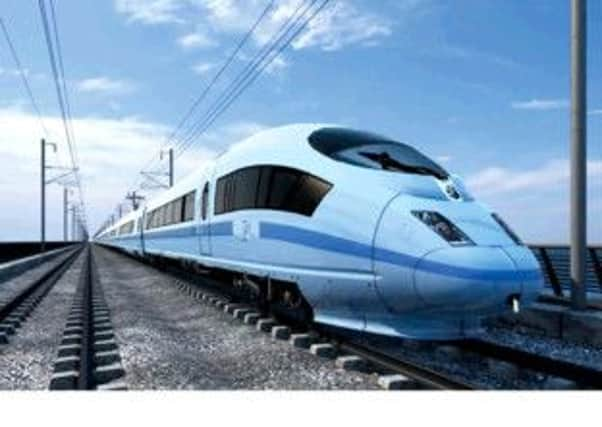High-speed rail ‘can help to transform’ large regional cities


A report published this morning by the Independent Transport Commission (ITC) think-tank highlights how the massive city centre development projects which have encompassed high-speed rail stations in regional cities in Europe have proved the catalyst for major economic regeneration in the area.
The study comprehensively dismisses concerns raised by opponents of high-speed rail that regional economies can actually be damaged by faster and more efficient transport links with their respective capital cities.
Advertisement
Hide AdAdvertisement
Hide AdITC analysts conducted fact-finding missions in France and Holland to witness first-hand how regional cities have seen enormous benefits from the arrival of high-speed rail.
“The change in some of the cities since the arrival of high-speed rail has been dramatic,” said Dr Matthew Nisbett, chair of the ITC. “You only have to look at pictures of the centre of Lille before and after the arrival of the international station to see how much it has changed.”
Lille, in northern France, was in the 1950s a city “faced with the challenge of regenerating a declining textile and coal mining economy”, the report states, and struggling to compete “with the dominance of Paris to the south.”
But after a decade of concerted lobbying, the city secured a high-speed rail station as part of the Eurostar link to London. The station was used as the springboard for a wider 800,000 square metre development.
Advertisement
Hide AdAdvertisement
Hide Ad“The economic decline has been reversed,” Dr Nisbett said. “There is no doubt that cities such as Leeds can see similar benefits.”
The ITC dismissed suggestions from opponents of HS2 such as Labour backbencher Barry Sheerman, the MP for Huddersfield, who fear that faster links to London will “suck” investment and jobs out of the region and down to the capital.
“If you look at Lyon, which is now just one hour from Paris on the TGV, we have not seen that pattern at all,” “Dr Nisbett said. “We have seen the economy strengthen due to the improved access to jobs market and to investors. First national firms - and increasingly international firms - have been encouraged to base themselves in the city due to the improved connectivity.”
The report was warmly welcomed in Leeds, which will host one of the region’s two new high-speed rail stations as part of the Government’s £50bn HS2 project.
Advertisement
Hide AdAdvertisement
Hide AdCoun James Lewis, chair of West Yorkshire transport authority Metro, said: “HS2 affords the Leeds City Region with the opportunity to accelerate growth, create thousands of jobs and increase prosperity – on a scale we have never seen before.
“This reports supports the argument that HS2 is the only way to ensure that the Leeds City Region can continue its rapid development and continue to be one of the major driving forces behind the wider UK economy.”
Leeds City Council’s executive member for the economy, Coun Richard Lewis, added: “The arrival of HS2 will reshape our city, bringing a prestigious new railway station to the city’s south bank and bolster one of the largest regeneration projects in Europe.
“HS2 will add to the momentum already being generated for this part of the city creating a large numbers of jobs and homes. In all, HS2 presents a great opportunity to rebalance Leeds and bring new prosperity.”
Advertisement
Hide AdAdvertisement
Hide AdThe report comes as a timely boost for the Government, which is battling to maintain confidence in the £50bn high-speed rail project following the admission by Transport Secretary Patrick McLoughlin this week that the main HS2 Bill is unlikely to have completed its passage through Parliament before the next election.
Ben Ruse, HS2 lead spokesman, said: “We welcome the findings of the ITC. Their report clearly underlines high speed rail’s transformational effect on regional cities, bringing jobs, skills and regeneration to once neglected areas.”
But ‘Stop HS2’ campaign manager Joe Rukin said confirmation that the Bill is unlikely to receive Royal Assent before May 2015 means HS2 will now become a “major issue” at the next election.
“Finally there is an acceptance from Government... that the chance of getting the HS2 Bill through before the next election are zero,” he said. “It was always going to be that HS2 would be a major issue at the next election.
“Politicians trying to justify the ridiculous levels of spending on HS2 will find that voters will not buy the spin.”